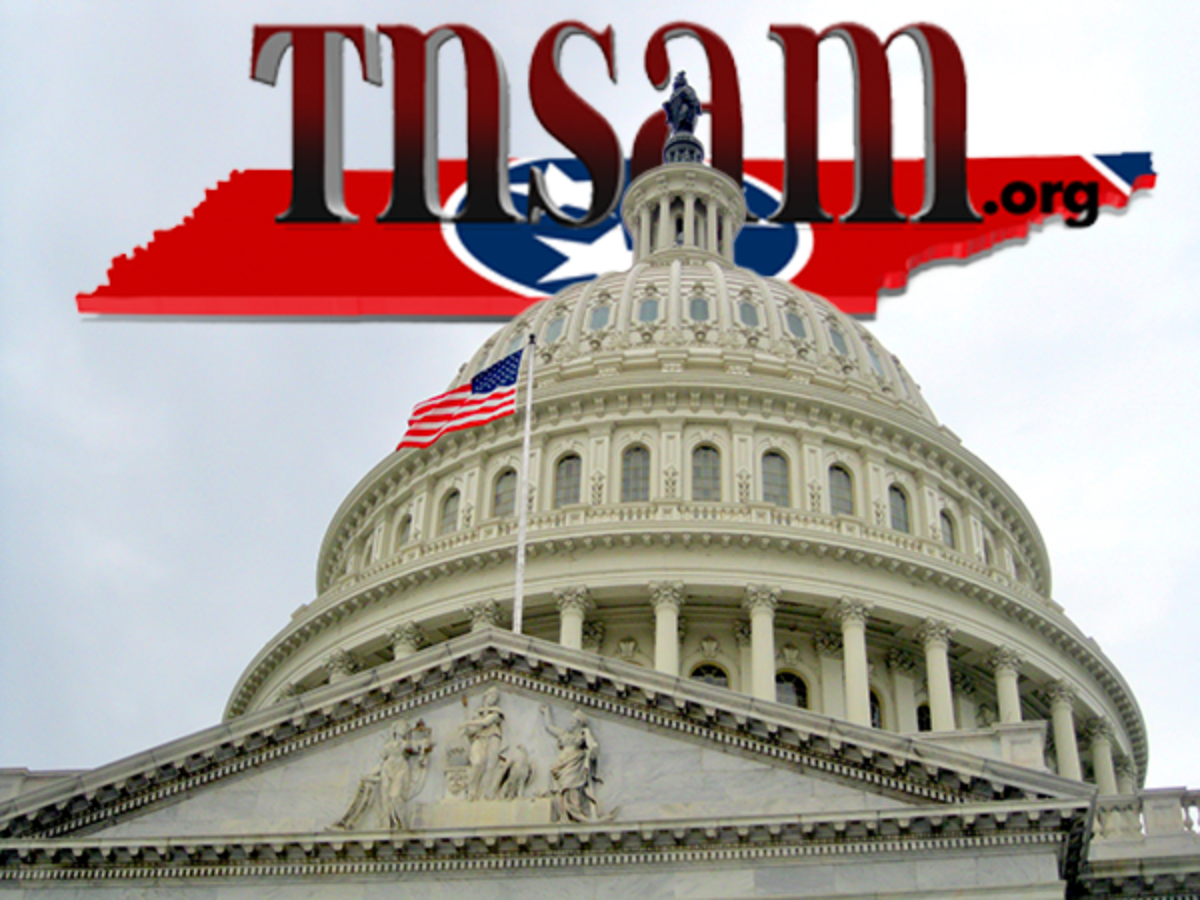Current Legislative Concerns
In response to current legislative concerns:
Dear all,
We have fended off a number of legislative issues and regulatory challenges in Tennessee over the last few years. Some brief background: 1) Tennessee physicians lead the nation in prescribing opiates, 143 prescriptions each year per 100 persons (compared with 60 in NY) despite TnSAM sponsoring REMS courses and other CME. 2) Tennessee has seen a 10-fold increase in neonatal abstinence syndrome, since 2000, to nearly 1000 cases per year now. This by itself is a budget-busting half-billion dollar focus from the Tennessee governor and legislature. 3) As elsewhere, more Tennesseans die annually from prescription drug overdose than from any other cause, including motor vehicle accidents. This comes with tremendous social and economic costs, not to mention tremendous suffering.
Shortly after I became President of the Tennessee Society of Addiction Medicine, I became aware of a potentially disastrous proposed amendment to TCA Title 53 Chapter 10 that would severely hamper the ability to treat opioid-addicted patients and their ability to get well. I was surprised by a bill initially written by Reckitt Benckiser; Orexo came in later to advise. I wrote legislators complaining that the state was practicing medicine, and in a complicated field at that. I made the point that state-directed micro-management of addiction medicine, or of any field of medicine, is an egregious action with easily foreseeable unintended consequences. I maintained that educating more physicians how to treat their opioid-dependent patients with medication and counseling would be far more effective and have a more lasting impact, and that the goal should be to improve upon addiction treatment and a Tennesseans’ ability to access good treatment, rather than to make it harder for them to get it.
I worked on a legislative wish list. I met with Tennessee Representative Tony Shipley (R) and persuaded him to table his troublesome and punitive legislation, and he tasked us with helping him create legislation that was “done right” and that was vetted by a large variety of stake holders. I wrote and distributed a comprehensive and integrative bill as a template and asked a dozen or so others (including officers of ASAM) modify the Word version as they saw fit, tracking changes. Common suggestions were adopted into the document that we ultimately submitted to Rep. Tony Shipley. I am attaching the bill as it was submitted a year ago. This Omnibus treatment and education bill had 15 bulleted points. This and only this is what TnSAM endorsed, and it is old history (March 2014).
Representative Tony Shipley (R) basically ignored our proposals and wrote “Bella’s Law” which is attached as its last version (Nov 2014). Shipley was adamant about limiting buprenorphine, including restricting buprenorphine to 16 mg and not allowing buprenorphine without naloxone except for pregnancy, but not even for allergy, adverse reaction or financial hardship. Rep. Shipley failed in his re-election bid, but the bill was passed on to another representative. The TMA and their lobbyists helped us fight back, but their familiarity, insights and experience advised us that this was going through, and the best we could do in reality was to modify it to something less toxic. January 2015, Rich Soper and I (both are past-presidents) met in Nashville with TMA lobbyists and hammered out a compromise bill, and we have requested but not received final wording. We were in damage control mode. We ended up with a TMA Addiction Treatment Act that was far less damaging and restrictive as that which the legislators were going for. We got provisions 1 and 3 that we wanted — good Samaritan, and no insurance denials for testing for EtOH/drugs in the ERs. We pushed way back on the 2nd provision. There is no longer a limitation on dose. High dose prescribing (24 mg) would require a consultation with an addiction specialist or a note in the chart explaining why one is not available. Monoproduct may be prescribed if there is documentation of adverse reaction to bup/nal. Diversion is a recognized problem, but if a patient truly needs high doses, it can be done.
Also during these last few years, the Tennessee Dept of Health formed a Chronic Pain Guidelines committee to create standards that the Tennessee Board of Medical Examiners would use to take licenses away from physicians who over-prescribe. I worked on and with this committee and was successful at getting buprenorphine removed and recognized as the only opiate exempt from the mandate for a physician/practice to be required to register as a pain clinic if >50% of the patients were prescribed opiates! Let that sink in. All buprenorphine prescribers would have to register as pain clinics to stay in compliance had we not been successful at getting buprenorphine removed and recognized as the only opiate offices can give for maintenance in opiate dependency. The last I heard, ASAM wanted buprenorphine preserved and recognized as the opiate physicians can give for maintenance in opiate dependency. I know it is great for pain, but other options for pain exist; not so for opiate dependency. If we do not police our own the state will, I have heard over and over. Well it appears we cannot police our own. Buprenorphine prescribers who greatly exceed their federally-mandated 100-patient limit by prescribing off-label for pain look, walk, talk and smell like pill mills to our legislators. If addiction doctors cannot limit their buprenorphine prescribing to opiate dependency, then we will lose our exemption in the Chronic Pain Guidelines and would have to register as a pain clinic to stay in compliance with the Tennessee Board of Medical Examiners.
The latest legislative disaster that we have had to deal with is a “not-in-my-back-yard” requirement for certificates of need (CON). Alex Zotos and I, in a conference call with the TMA lobbyists March, 2015, were asked for alternative criteria for determining what offices should be required to obtain a CON. The proposal was for any clinic that saw > 150 patients. We indicated that there was no acceptable criteria, that CONs were expensive and unnecessarily burdensome. We were advised that the legislature was determined to pass something, and we responded that we had no compromise to offer, that TnSAM opposed the legislation. The last I heard it passed a Senate subcommittee 9 to 0.
Tennessee is also infamous for SB1391 (attached) making it a potential felony for women to be both opioid dependent and pregnant.
Alex, forward this to our TnSAM members if you think it appropriate. I will also post it on our website (www.TnSAM.org). As president, ask them to contact their local legislators, and plead for sanity.
Stu, we all agree with your objections to the buprenorphine part of the bill. What you say is obvious to all, but at least the only mandate is an attempted referral to an addiction specialist when high doses are used. I hope the context above demonstrates that we have done the best we can with what we have had to deal with. I have engaged ASAM numerous times and with numerous departments and people, including yourself. I guess everyone could have done more, but it is late in the game at this point.
John B. Standridge, M.D.
Past-president, TnSAM
Personal Medicine LLC
5113 Hwy 58 Ste 212
Chattanooga TN 37416-1666

